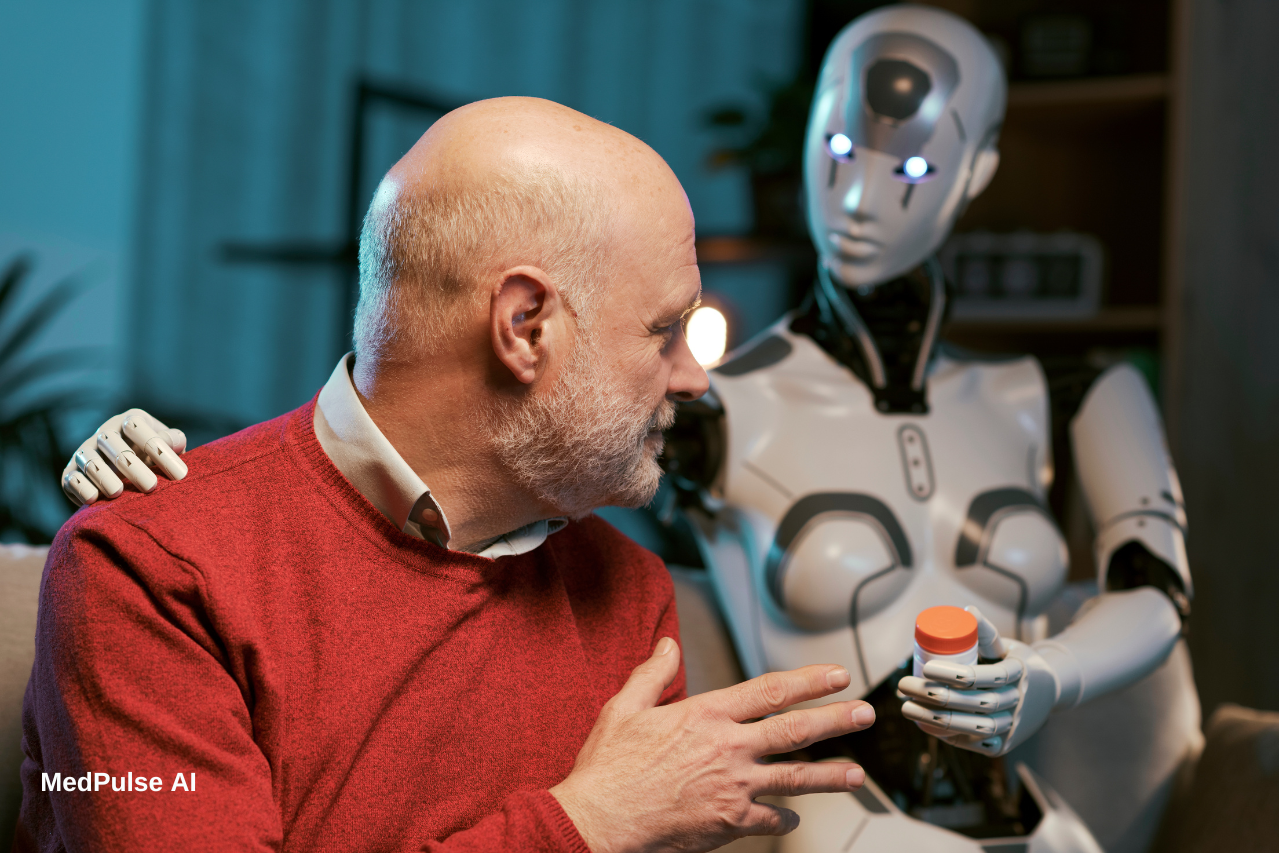Kidney transplants offer a new lease on life for patients with end-stage renal disease. However, predicting the outcomes post-transplant, such as survival rates and the likelihood of organ rejection, has remained a complex challenge. Traditional methods, though valuable, often lack the precision and adaptability required to tailor predictions to individual patients. Enter artificial intelligence (AI): new advancements in AI have enabled tools to outperform traditional methods in predicting kidney transplant outcomes, allowing for more personalized and proactive care.
Why Accurate Outcome Prediction Matters in Kidney Transplantation
Kidney transplants demand a thorough risk assessment to ensure the longevity and health of the transplanted organ and the patient. Predictive tools serve as essential guides for healthcare providers by:
- Assessing Suitability and Match Quality: Predictive models analyze compatibility between the organ donor and recipient based on numerous variables, such as immune markers, genetic similarities, and lifestyle factors.
- Guiding Treatment Plans: Predictions of potential risks help doctors decide on immunosuppressive therapies, adjust monitoring protocols, and anticipate complications.
- Optimizing Long-Term Survival: When high-risk factors are identified early, healthcare teams can intervene sooner, which has been shown to improve patient outcomes and prolong graft survival.
A tool that enhances accuracy in these areas benefits not only healthcare providers but also ensures patients receive personalized, precise care. But while traditional methods have been foundational, they also have their limitations, creating a pressing need for advanced tools that can address the complexity of kidney transplant care.
Limitations of Traditional Predictive Models in Kidney Transplant Care
Traditional predictive models primarily use statistical analyses and clinical judgments based on historical patient data. These models offer value but struggle with certain limitations:
- Limited Scope of Analysis: Kidney transplant success is influenced by numerous dynamic factors, from genetic markers and environmental exposures to medication adherence and lifestyle. Traditional models often use linear statistical methods that struggle to process the complexity of these data interactions.
- Generalized Approach: Conventional predictive tools often generalize across patient populations, creating broad risk categories instead of specific, individualized insights. This one-size-fits-all approach leaves much to be desired for personalizing patient care.
- Lack of Adaptability: Existing models don’t easily adapt to changes in patient condition over time. Real-time changes, such as fluctuations in immune markers or kidney function, aren’t considered by models based on static historical data, limiting their relevance for ongoing care.

These gaps in traditional approaches leave room for errors in prediction and treatment, which can have serious repercussions for patient health. However, AI’s ability to analyze large datasets, detect complex patterns, and adapt to new information makes it an ideal solution.
How AI is Transforming Kidney Transplant Outcome Prediction
Recent advancements in AI, particularly machine learning (ML) and deep learning, are enabling the creation of predictive models that process large, diverse datasets and recognize subtle trends that escape human detection. In kidney transplant care, these tools have shown impressive results, with applications including:
- Predicting Graft Survival: AI models analyze factors such as immune compatibility, genetics, and patient lifestyle to predict long-term graft survival.
- Detecting Organ Rejection Risk: By analyzing immune markers, genetic indicators, and patient history, AI can assess the risk of organ rejection, allowing early intervention.
- Monitoring for Post-Transplant Complications: AI-powered tools analyze ongoing health data to monitor patient status, flagging early warning signs of complications.
AI Models Outperforming Traditional Methods
Studies on AI’s application in kidney transplant care reveal its potential to outperform existing methods significantly. For example, a 2024 study published in The Lancet Digital Health demonstrated that a specific AI model exceeded standard statistical methods in predicting kidney graft survival by 20% and identifying early signs of rejection with 30% better accuracy. Such tools leverage a vast range of data points, including immunological markers, genetic data, and detailed patient history, allowing for more nuanced and reliable predictions.
Through collaboration between institutions like the Mayo Clinic, Cleveland Clinic, and Massachusetts General Hospital, an AI-driven model has shown the capability to continually refine its predictive accuracy using updated patient data, highlighting the significant potential for real-time risk assessment in kidney transplant care. This initiative exemplifies how leading healthcare facilities are leveraging AI advancements to enhance individualized patient monitoring and improve transplant outcomes.
Breaking Down How AI Models Work in Predictive Kidney Transplant Care
Machine Learning for Pattern Recognition
At the core of these AI models are machine learning algorithms that use training data to recognize patterns and make predictions. For kidney transplant patients, ML models are trained on vast datasets, including patient demographics, genetic markers, previous cases, and outcomes, allowing the model to “learn” factors that indicate risk for organ rejection or other complications. This level of pattern recognition is particularly valuable in kidney transplant cases, where subtle data differences can dramatically affect the outcome.
Deep Learning for More Complex Analysis
Deep learning models, a subset of machine learning, take pattern recognition a step further by utilizing artificial neural networks. These networks operate similarly to the human brain, learning and adjusting with each piece of new data. In kidney transplantation, deep learning models can analyze large-scale genetic and immune data that may be too complex for traditional methods. For instance, some models can detect molecular markers of organ rejection well before they would show up in conventional clinical tests, allowing for preemptive care adjustments.
Real-Time Adaptability
AI’s real-time adaptability is a game-changer for transplant care. While traditional models rely on historical data, some AI tools continuously update predictions with incoming data from lab results, patient biometrics, or other real-time health indicators. This adaptability is crucial in transplant medicine, where patient conditions can change rapidly and unpredictably. For example, AI models could monitor immune response markers post-transplant and, upon detecting an increase in rejection-related markers, alert healthcare providers to take early action.
Benefits of AI Predictive Tools for Patients and Providers
The benefits of AI-driven prediction models in kidney transplant care are substantial and extend to patients, healthcare providers, and the healthcare system overall. Key advantages include:
- Enhanced Precision in Risk Assessment: With AI’s specificity, healthcare teams gain a nuanced understanding of risk factors and how they interact, leading to more accurate patient assessments.
- Opportunities for Early Intervention: AI tools that detect early signs of complications enable healthcare providers to take preemptive measures, reducing the risk of severe complications or organ failure.
- Cost Savings: Improved prediction models translate to fewer complications and re-hospitalizations, lowering the cost of post-transplant care.
- Improved Quality of Life: Patients benefit from personalized care that increases the longevity of the transplant and reduces complications, allowing for a higher quality of life.
Ethical and Practical Considerations for AI Integration
While AI holds incredible promise, integrating these tools into transplant care presents challenges. Some important considerations include:
- Data Privacy and Security: AI models require extensive patient data, raising privacy concerns. Ensuring compliance with healthcare regulations, like HIPAA, is essential to protect patient information.
- Model Interpretability: One major challenge with AI is that its decision-making processes aren’t always transparent, leading to a “black box” effect. Healthcare providers need clear, interpretable insights to trust and act on AI recommendations confidently.
- Workflow Integration: To avoid overwhelming providers, AI models should be integrated seamlessly into clinical workflows. Tools should deliver actionable insights, rather than raw data, that healthcare professionals can quickly interpret and use.
The Future of AI in Kidney Transplant Care
AI in kidney transplant care is just one application in a broader trend of data-driven healthcare. With its ability to enhance accuracy and enable personalized patient care, AI is driving healthcare toward precision medicine. Looking ahead, several developments can be anticipated:
- Broader Applications Across Transplant Types: AI has shown similar success in heart and liver transplants, indicating potential for widespread application in transplant care.
- Increased Focus on Predictive Healthcare: With AI-driven insights, healthcare systems are moving from reactive to predictive models of care, allowing interventions before complications arise.
- Growing Real-World Evidence Database: AI enables researchers to gather real-world data on patient outcomes, creating a foundation for continuous improvement in transplant predictions.
AI’s Role as a Game-Changer in Kidney Transplantation
The adoption of AI for kidney transplant prediction represents a milestone in transplant care. By delivering highly accurate, real-time insights, AI offers an invaluable resource for healthcare providers and patients alike. Although challenges remain, including data security and model transparency, the advantages of AI—greater predictive accuracy, early intervention opportunities, and individualized care—are transforming patient outcomes for the better.
As we continue to advance AI applications in healthcare, collaborative efforts among researchers, clinicians, and policymakers will be essential to ensure these tools are deployed responsibly and effectively. The future of kidney transplantation—and healthcare more broadly—looks promising as AI paves the way for a new era in precision medicine.
Are you interested in how AI is changing healthcare? Subscribe to our newsletter, “PulsePoint,” for updates, insights, and trends on AI innovations in healthcare.




